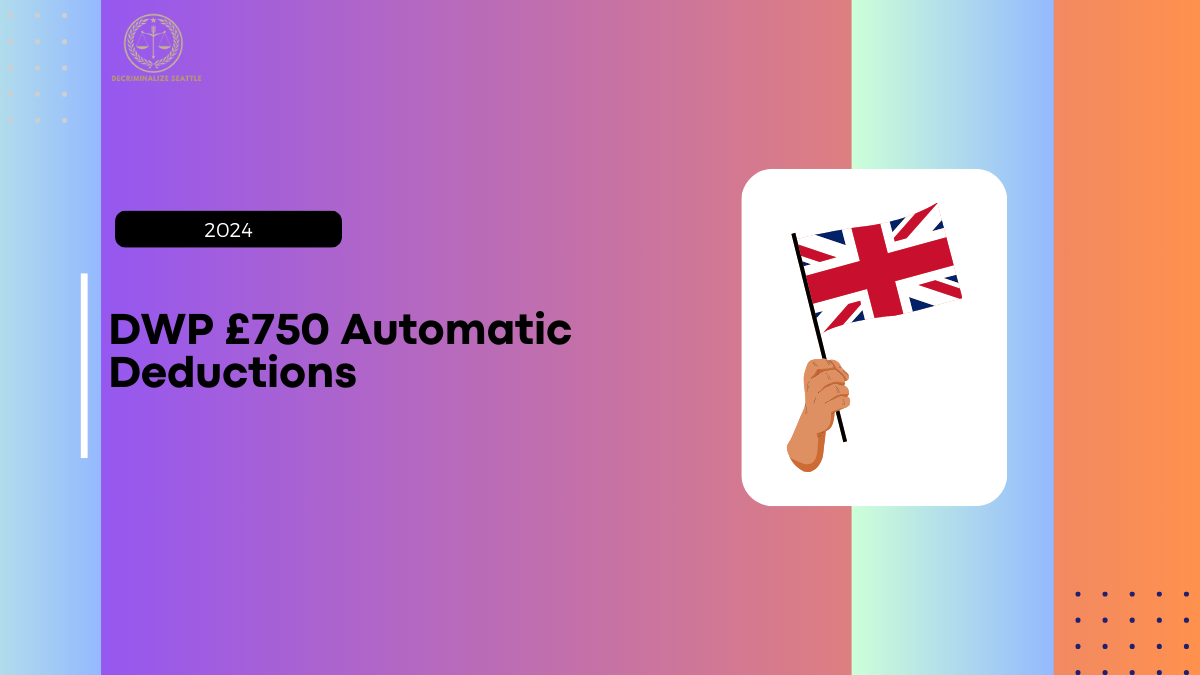Many individuals receiving Universal Credit may see a reduction of up to £750 annually due to automatic deductions applied by the Department for Work and Pensions (DWP). These deductions are typically made to recover debts such as advance payments, overpayments, or other outstanding obligations.
While Universal Credit is a lifeline for millions of households, these deductions can significantly impact claimants’ finances, making it more difficult for them to manage daily living expenses. It is important to understand how these automatic deductions work, what types of debts are involved, and what steps you can take if you are affected by this issue.

DWP £750 Automatic Deductions
The DWP applies automatic deductions from Universal Credit payments when claimants have outstanding debts to the government. These debts might include advance payments provided to cover immediate financial needs before Universal Credit payments began or overpayments that were mistakenly issued and must be repaid.
The DWP typically recovers these amounts by deducting a portion of a claimant’s monthly Universal Credit payment, with the total annual reduction potentially reaching up to £750 for many recipients.
Deductions are capped to ensure that claimants still receive some portion of their benefits, but the impact can still be significant, especially for those on already tight budgets. The government uses these deductions to recover debts without requiring claimants to make separate payments, but the reduction in benefits can create financial strain for many households.
Types of Debts Involved
Several types of debts may lead to automatic deductions from Universal Credit payments. Understanding these debts is key to managing your finances effectively:
- Advance Payments: When a claimant first applies for Universal Credit, they may request an advance to help with immediate expenses while waiting for their first payment. This advance is later repaid through deductions from future payments.
- Overpayments: If the DWP mistakenly issues a higher-than-entitled Universal Credit payment, they will seek to recover the excess amount through future deductions.
- Budgeting Loans: Budgeting loans, which are issued to help with essential costs like rent or household items, may also be repaid through deductions from Universal Credit.
- Third-Party Debts: In some cases, debts to third parties, such as unpaid rent or utility bills, may be recovered through Universal Credit deductions.
The range of debts that can be repaid through Universal Credit deductions can leave claimants with substantially less money each month, impacting their ability to cover everyday living expenses.
Steps to Take if Affected
If you are affected by these automatic deductions, there are several steps you can take to minimize the impact on your finances:
- Contact the DWP: If you notice that deductions are being taken from your Universal Credit payments, contact the DWP to confirm the reason for the deductions and request a breakdown of the recovered debts. In some cases, you may be able to negotiate lower deductions if they are causing financial hardship.
- Apply for a Hardship Payment: If the deductions leave you unable to cover basic needs like food or rent, you may be eligible for a hardship payment. This is a reduced amount of Universal Credit provided to help cover essential costs while deductions are being made.
- Request a Debt Reduction Pause: In extreme cases, you can ask the DWP to pause debt recovery if you are experiencing severe financial difficulties. This will temporarily stop deductions, giving you time to stabilize your finances.
- Seek Financial Advice: Contact organizations like Citizens Advice to help manage your debts and explore your options for reducing or managing Universal Credit deductions. They can provide guidance on negotiating with the DWP and may offer solutions to ease your financial burden.
- Monitor Your Payments: Always monitor your Universal Credit statements closely to ensure that deductions are accurate and that you understand how much is being taken. If you notice any discrepancies or errors, raise them with the DWP immediately.
By understanding the types of debts involved and taking proactive steps to manage the impact of deductions, you can better navigate the financial challenges associated with automatic deductions from Universal Credit.
Click here to know more.